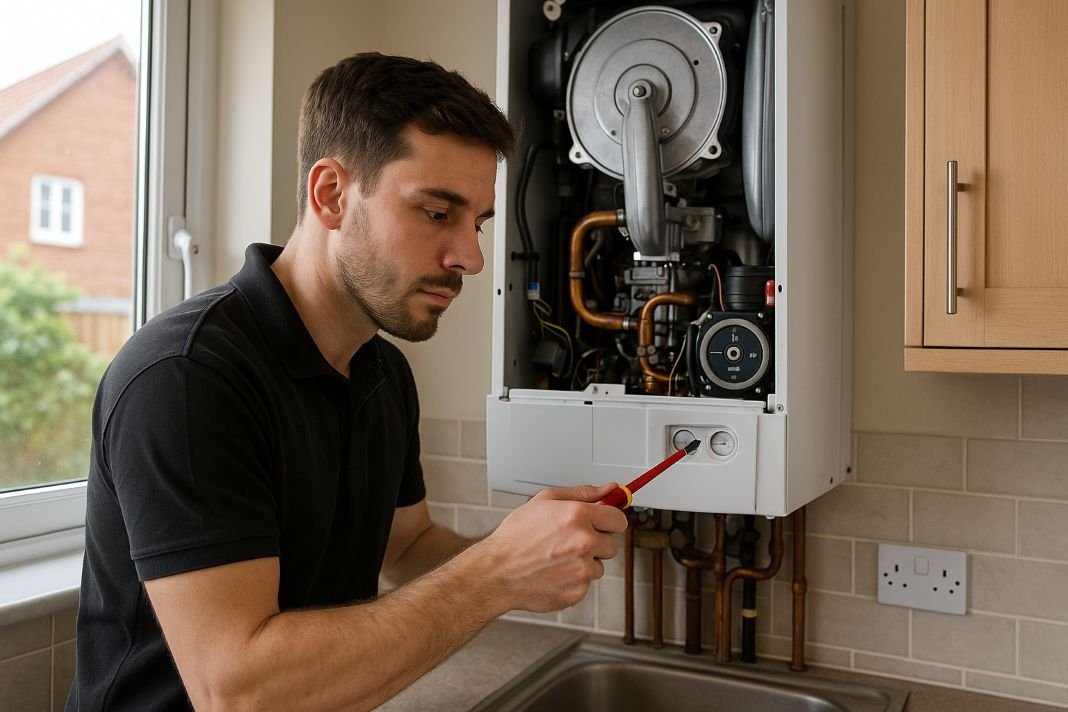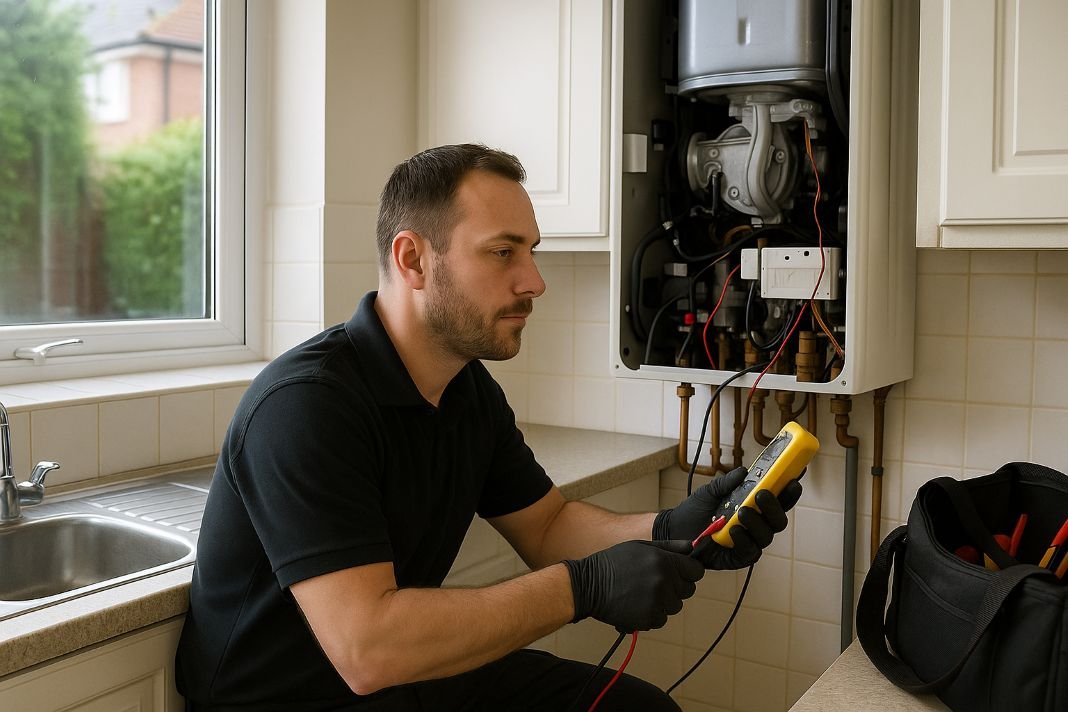What are the most common gas certificate mistakes landlords make and how can they be avoided?
Many landlords, particularly those managing properties in areas like Harrow, often overlook important responsibilities regarding gas safety certification. Failing to follow correct procedures under UK gas safety law can lead to serious consequences. This article outlines five frequent mistakes landlords make with gas certificates, helping you stay within the law, protect tenants, and maintain your rental property.
Here's What We Have Covered In This Article
Mistake 1: Not Conducting Annual Gas Safety Checks
Why are annual gas safety checks required by law?
The Gas Safety (Installation and Use) Regulations 1998 require landlords to carry out a gas safety inspection every 12 months. This applies to all rented properties that contain gas appliances or flues. Missing this legal requirement puts tenants at risk and can result in prosecution, financial penalties or loss of legal rights such as serving a Section 21 notice.
What happens if you skip or delay a gas inspection?
Delaying a gas safety check can invalidate your landlord insurance and weaken your position in any legal proceedings. In the event of a gas-related incident such as carbon monoxide poisoning, landlords can be held accountable. Timely inspections confirm that all pipework, gas appliances and flues are functioning safely.
How to stay on track with inspections
Use automated reminders or property management software to monitor certificate dates. Landlords in Harrow often rely on digital tools to manage their compliance. Building a working relationship with a Gas Safe registered engineer ensures you have timely access to inspections every year.
Mistake 2: Using Gas Engineers Who Are Not Gas Safe Registered
Why is Gas Safe registration important?
In the UK, only engineers listed on the Gas Safe Register can legally work on gas appliances in rented homes. Registration proves they are properly trained, regularly assessed and certified to carry out inspections, servicing and installations.
What are the risks of hiring unqualified engineers?
Hiring someone who is not registered could result in unsafe work. Poor installation or faulty checks could lead to gas leaks, fire or exposure to carbon monoxide. An invalid certificate can be used as evidence of negligence and may result in fines, enforcement notices or worse.
How to check if your engineer is registered
Ask to see their Gas Safe ID card, which includes their licence number and qualifications. You can also verify their details on the official Gas Safe Register website. If the engineer is not registered, do not allow them to carry out any gas work.
Mistake 3: Not Giving Tenants a Copy of the Gas Safety Certificate
When should you give the certificate to tenants?
You must provide the gas safety certificate to new tenants before they move into the property. For existing tenants, the certificate must be shared within 28 days of the annual gas safety check. These timeframes are legal obligations under UK rental law.
What happens if you do not provide the certificate?
Not giving tenants a copy of the gas certificate could result in fines and legal action. It also prevents landlords from using the Section 21 process to regain possession of the property. Councils such as Harrow Borough Council have enforcement powers to penalise landlords who fail to comply.
What is the best way to manage gas safety records?
Keep both digital and hard copies of each certificate. Send a copy to tenants by email and offer a printed version as part of your tenancy pack. Save delivery confirmation or email replies in case you need to show proof of compliance later. This habit also supports clear communication and prevents misunderstandings between landlords and tenants.
If you’re based locally, you can read more about landlord compliance from trusted Harrow property management providers here.
Pro Tip: Don’t wait until just before the renewal date – aim to schedule gas inspections two to three weeks in advance. This gives time to fix any issues without affecting tenancy agreements.
Book Your CP12 Inspection Today
Keep your property legally compliant and your tenants safe with an annual gas safety check from our certified engineers.
Mistake 4: Incomplete or Missing Records
Why are accurate gas safety records important for landlords?
Maintaining up-to-date and complete gas safety records is more than just good practice. It is a legal requirement under the Gas Safety Regulations. Missing or inaccurate documentation could lead to enforcement notices, insurance issues or legal disputes with tenants.
How long should landlords keep gas safety records?
Landlords must keep copies of all gas safety certificates for a minimum of two years. However, many experienced landlords choose to keep them longer, especially when managing multiple properties or during disputes. Keeping historical records helps in demonstrating a consistent record of compliance.
What is the best way to store and organise gas certificates?
Store certificates both digitally and on paper. Use naming conventions that include the property address and date for easy tracking. Many landlords now use cloud storage services, email folders or property management systems to manage records. Keeping organised helps you respond quickly to requests from local authorities or tenants.
Need a Trusted Gas Safe Engineer in Harrow?
We offer fast, affordable gas inspections and CP12 certificates across Harrow and Greater London.
Mistake 5: Ignoring Appliances Not Listed in the Certificate
Are landlords responsible for all gas appliances in a rental property?
Yes, landlords are responsible for ensuring that all fixed gas appliances they provide are checked and safe to use. While the certificate focuses on appliances inspected during the check, that does not mean other appliances can be ignored.
What kind of appliances are often overlooked?
Commonly missed items include gas fires in reception rooms, secondary boilers, and built-in gas hobs in annexes or extensions. Even if an appliance is not used regularly, it should still be inspected to confirm it is safe and properly maintained.
How to make sure nothing is missed during the inspection
Walk through the property with the engineer before the inspection begins. Make sure every appliance, visible pipe and flue is reviewed. Always double-check that the final certificate reflects all appliances inspected and includes any advisory notes.
A full inspection covering all gas appliances supports safer homes and helps landlords comply with the Housing Health and Safety Rating System used by councils such as Harrow to assess property conditions.
Summary
Landlords who understand and meet their gas safety responsibilities avoid legal trouble, protect their tenants and maintain the value of their rental property. From hiring registered engineers to sharing certificates and keeping proper records, the details matter. Mistakes can be costly, but they are easy to prevent with planning and the right tools.
Local landlords in Harrow can strengthen compliance by working with experienced professionals and staying informed through local housing authority updates.




